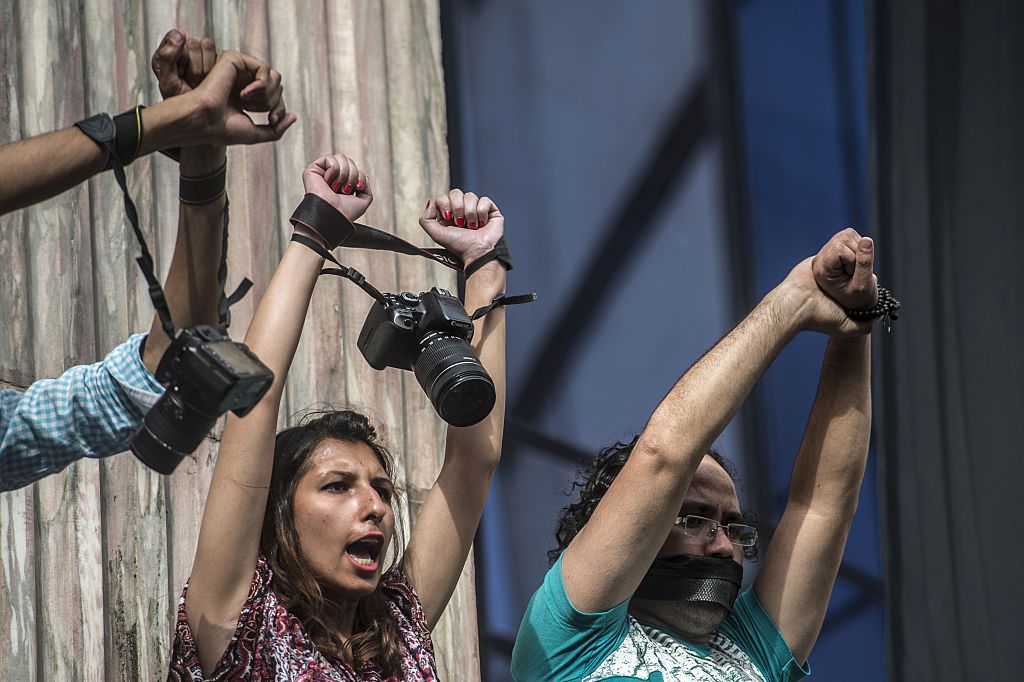
The military coup in 2013 and Sisi’s rise to power came with a heavy price on all journalists and they continue to pay the price for fighting against the heavy and brutal media crackdowns.
Egyptian army Chief General Abdel Fattah al-Sisi coalition to overthrow the first democratically elected president Mohamed Morsi just a year into his presidency was the start of a war against any journalist and political activist freely expressing their opinions on governmental matters.
Egypt is now considered one of the world’s biggest jailers of journalists, with over 30 journalists currently incarcerated, making Egypt among the countries with the highest number of incarcerated journalists. According to RWB, Egypt is ranked 168 out of 180 countries for press freedom.
Many Journalists have been detained and released multiple times since July 2013, some of them never to be released with a continuous sentence renewal or with new false charges.
According to CPJ and RSF’s data, more than 100 journalists have been arrested since the military’s overtake.
The CPJ data report points out the increasing number of journalists detained on the charges of “anti-state” and “false news”.
“They will do anything to shut journalists up, anything you say or do that criticises the military regime is an act of spreading “false news” and is against the state. It has become a crime to express your political thoughts as a citizen let alone be an active journalist,” former Socialist Sixth April Movement member and journalist, Nahla, said.
Nahla was a detained journalist in August 2014 for a period of two weeks, after her release she fled the country.
In the report, CPJ’s data highlights cases of journalists who have had their imprisonment extended through “rotation”, a tactic that is often used by the government to keep journalists detained without trial past their maximum two-year limit. The extend of detention allows authorities to charge journalists with new cases.
“Even journalists who were detained and then released are not safe, many journalists end up detained again with a new false charge against them,” Nahla said.
The military regime has extended its censorship by blocking media websites such as AlJazeera (Arabic), Mada Masr and multiple human rights organisations.
The blocking of websites violates the Egyptian Constitution in relation of freedom of media and speech. In order to “legalise” the act of blocking hundreds of websites, on April 17, 2017, the State of Emergency law was proclaimed for a period of three months in the country. The declaration disrupts the constitutional guarantees.
According to AFTE‘s data report, shortly after implemented laws, the government began blocking hundreds of websites beginning in June 2017, the highest numbers were in the month of September with over 465 websites blocked.
These data numbers demonstrate the effects of a viciously powerful regime’s attack against journalists and the freedom of media and speech. As Sisi’s power continues to solidify itself, the fight for freedom for journalists continues to get harder.
